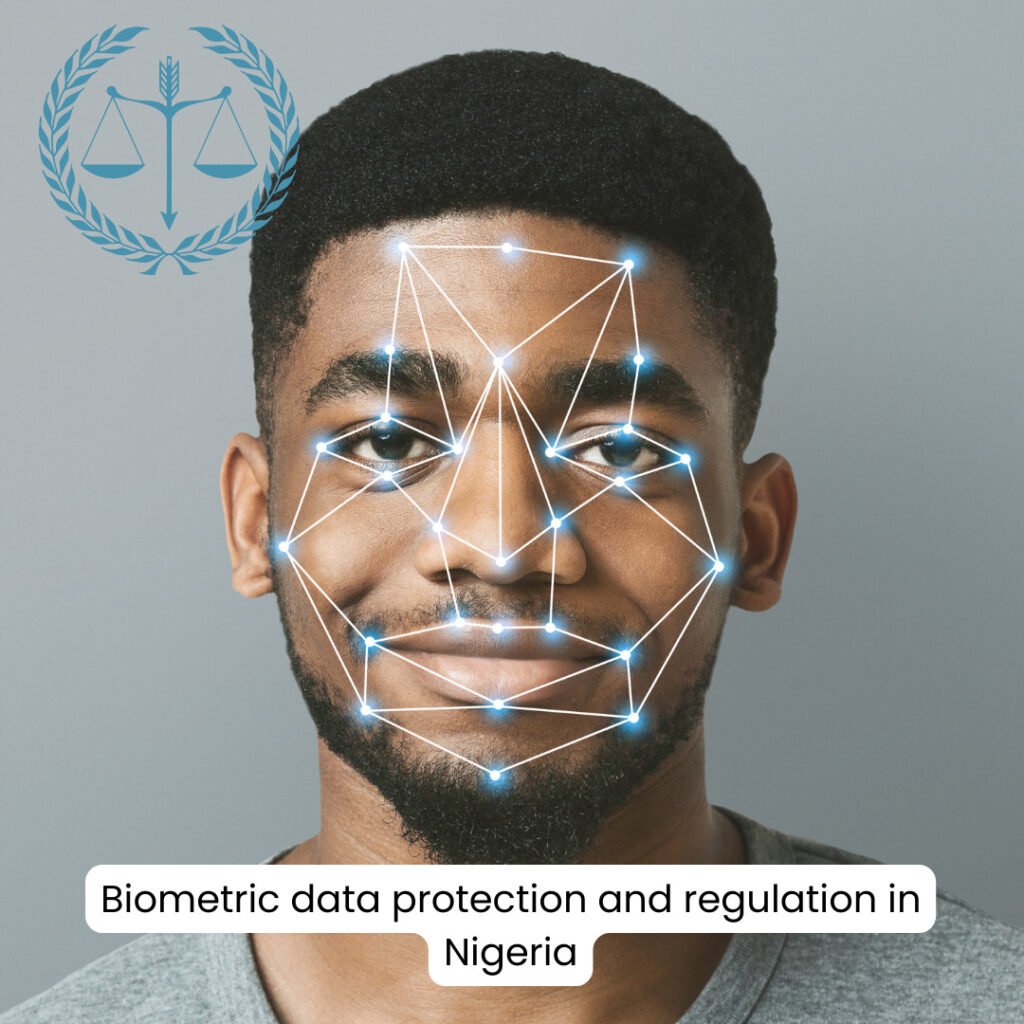Biometric Data Protection and Regulation in Nigeria
In an increasingly digital and interconnected world, the use of biometric data has become a cornerstone of identity verification and access control. Biometric technologies, such as fingerprint scans, facial recognition, and iris scans, offer unparalleled accuracy and security. However, as the collection and use of biometric data become more prevalent, ensuring its protection and responsible use is of paramount importance. In Nigeria, a nation experiencing rapid technological growth, comprehensive regulations for biometric data are essential to safeguard individual privacy, prevent misuse, and uphold fundamental rights. In this article, we delve into the realm of biometric data protection and regulation in Nigeria, exploring their significance, challenges, regulatory approaches, and implications for individuals, businesses, and government entities.
The Rise of Biometric Data
Biometric data refers to unique physical or behavioral characteristics that can be used to identify individuals. From unlocking smartphones to verifying identities at immigration checkpoints, biometric data is becoming increasingly integral to various sectors.
The Significance of Biometric Data Protection and Regulation
Biometric data protection and regulation hold immense significance for several reasons:
- Privacy Preservation: Regulations ensure that individuals’ biometric information is stored, processed, and used in a manner that respects their privacy and dignity.
- Security and Accuracy: Proper regulations can establish security standards to safeguard biometric data from unauthorized access, breaches, and cyber threats.
- Consent and Control: Regulations enable individuals to provide informed consent for the collection and use of their biometric data, giving them control over their personal information.
- Accountability: Regulatory frameworks hold organizations accountable for the responsible and ethical use of biometric data, deterring potential misuse.

Challenges in Biometric Data Protection and Regulation
Biometric data protection and regulation in Nigeria come with challenges:
- Technological Evolution: Rapid advancements in biometric technologies may outpace regulatory efforts, necessitating adaptable and future-proof regulations.
- Legal Framework: Developing a comprehensive legal framework that addresses the complexities of biometric data collection, storage, and usage is crucial.
- Data Breaches: Ensuring the security of biometric databases and preventing data breaches requires stringent cybersecurity measures.
- Cross-Border Data Flows: As biometric data can be transferred across borders, international collaboration and harmonization of regulations are essential.
Regulatory Approaches
Regulatory approaches to biometric data protection can include:
- Informed Consent: Requiring organizations to obtain explicit and informed consent from individuals before collecting and using their biometric data.
- Purpose Limitation: Regulating the use of biometric data for specific and legitimate purposes, preventing unauthorized or unnecessary use.
- Data Minimization: Establishing guidelines for organizations to collect and retain only the necessary biometric data, minimizing risks of data exposure.
Implications and Opportunities
Biometric data protection and regulation have implications for individuals, businesses, and government entities:
- Individual Rights: Regulations empower individuals to have control over their biometric data, ensuring their rights to privacy and consent.
- Business Compliance: Organizations must navigate regulations to ensure ethical and secure handling of biometric data, building consumer trust.
- Government Services: Government entities can leverage biometric data for efficient service delivery while adhering to regulatory requirements.
Charting the Path Forward
The future of biometric data protection and regulation in Nigeria holds promise:
- Regulatory Expertise: Building regulatory expertise through collaboration with technology experts, legal professionals, and industry stakeholders is crucial.
- Stakeholder Engagement: Engaging with civil society, privacy advocates, and biometric technology developers can lead to well-informed and balanced regulations.
- Educational Initiatives: Educating individuals about the benefits, risks, and legal considerations of biometric data usage can promote responsible awareness.
- Global Collaboration: Strengthening international cooperation on biometric data protection can address challenges posed by cross-border data flows.
Conclusion
Biometric data protection and regulation are the guardians of individual privacy and security in the digital age. By adopting principles that balance technological advancement, privacy rights, and regulatory oversight, Nigeria can create an environment where biometric data is harnessed to drive progress, enhance security, and empower individuals. As Nigeria continues its journey toward a digital future, a proactive and adaptive approach to biometric data protection and regulation will contribute to a technological ecosystem that values privacy, fosters economic growth, and supports a thriving and secure society.
